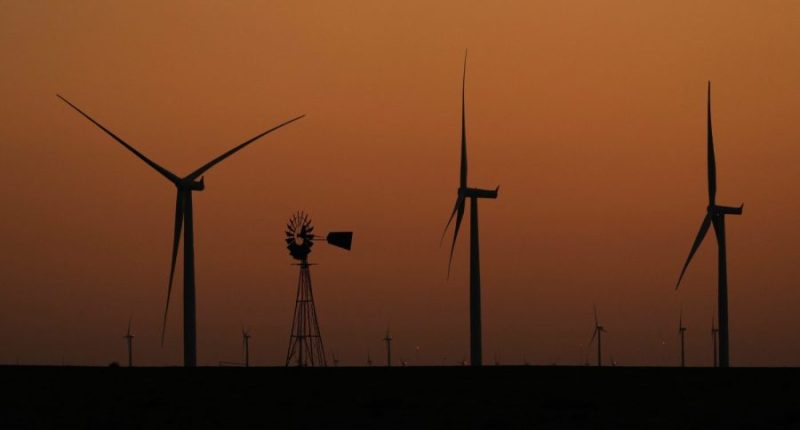Share this @internewscast.com

A revised version of the Senate’s megabill significantly reduces tax incentives for wind and solar projects and introduces a new tax on future initiatives in these sectors.
The earlier draft unveiled by Senate Republicans earlier this month removed the credit for wind and solar projects not starting construction by specific deadlines. In contrast, the newest version ties incentives to when projects commence electricity production, setting a much tougher requirement.
The original draft allowed full credit for projects starting construction within this year, 60 percent for those beginning next year, and 20 percent for projects starting in 2027, with eventual phase-outs beyond that period.
The new legislation instead says that the credits will only apply to facilities that begin producing electricity before the end of 2027.
In addition, it imposes a new tax on some wind and solar projects that are placed in service after 2027.
The projects that will be taxed if a certain percentage of the value of their components come from China.
The Democrats’ 2022 Inflation Reduction Act included hundreds of billions of dollars in tax credits for low-carbon energy sources, including renewable energy. These subsidies were expected to massively reduce the U.S.’ planet warming emissions.
The GOP’s cuts to the credits are expected to severely curtail those gains.
If they pass, the cuts represent a win for the party’s right flank, which has pushed for major cuts to the credits, and a loss for it’s more moderate wing which has called for a slower phaseout.
The renewables lobby slammed the changes as hampering the sector.
“In what can only be described as ‘midnight dumping,’ the Senate has proposed a punitive tax hike targeting the fastest-growing sectors of our energy industry. It is astounding that the Senate would intentionally raise prices on consumers rather than encouraging economic growth and addressing the affordability crisis facing American households,” Jason Grumet, CEO of the American Clean Power Association, said in a written statement.
“These new taxes will strand hundreds of billions of dollars in current investments, threaten energy security, and undermine growth in domestic manufacturing and land hardest on rural communities who would have been the greatest beneficiaries of clean energy investment,” he added.
















